Bertha Pappenheim
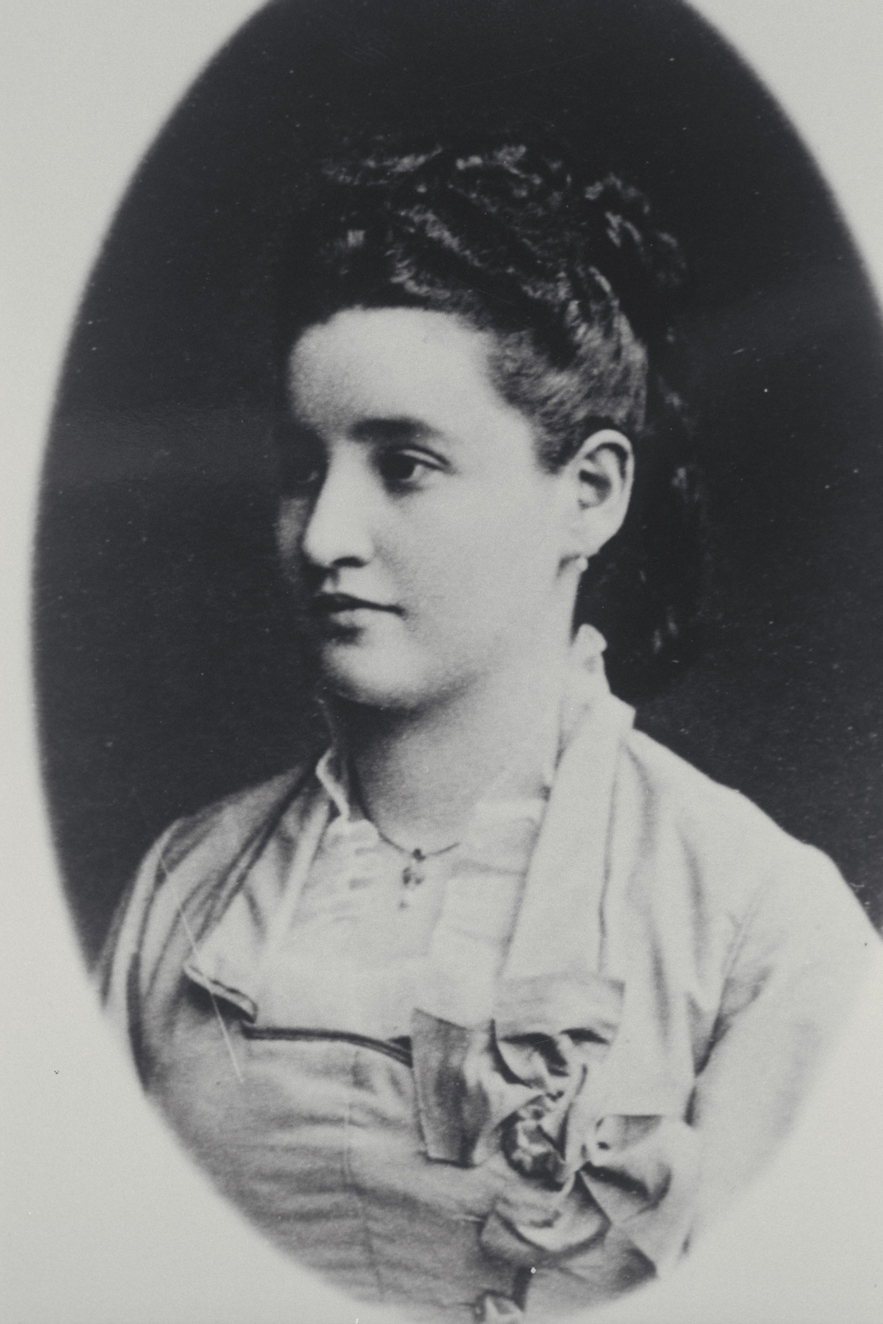
Bertha Pappenheim was a German-Jewish feminist and social worker who played an important role in the strive for the emancipation of German-Jewish women, and the introduction of social work as an occupation for women of the German-Jewish bourgeoisie. Many different perceptions exist of Bertha Pappenheim. Some see her as a feminist and social worker, while others see her as an anti-Zionist, who is prejudiced against European Jews. Furthermore, people make a distinction between the mentally ill teenage “Anna O.” and the successful, emancipated woman living in Frankfurt and running the biggest Jewish feminist organization in Germany.
Despite the many opinions on Bertha Pappenheim, it is undeniable that she was an influential figure in 20th-century German Jewish history, particularly in the Jewish feminist movement. This article provides background information on the private and public life of Bertha Pappenheim and her contributions toward German-Jewish female emancipation.
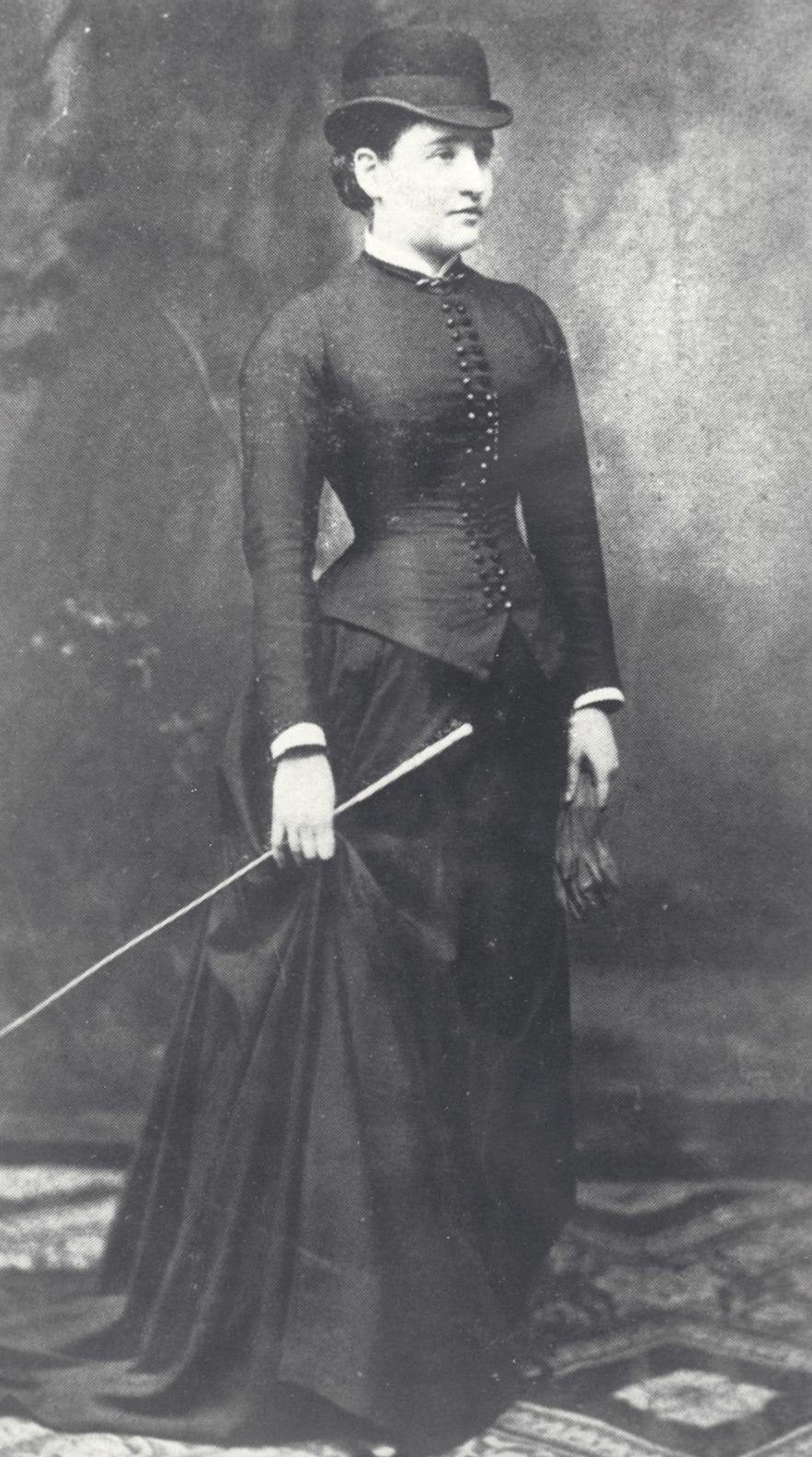
Her Life as a Child and Teenager
Bertha Pappenheim was born on February 27th, 1895, in Vienna, Austria. Her father Siegmund came from Bratislava in Eastern Europe while her mother, Rescha, née Goldschmidt, was originally from Frankfurt. The family was very religious and observed Orthodox traditions. Bertha went to a Catholic girl’s school until she was 16. Afterward, she had to stop school to support her mother at home. Overall, her youth is often described as unfulfilled, as she was dissatisfied with the circumstances she lived in.
Her life changed dramatically, in 1880, when her father became sick and died shortly after. In the months to follow, Bertha Pappenheim suffered anxiety attacks, hallucinations, paralysis, and language disorders. During this time, Bertha was treated by Joseph Breuer, a friend of Freud’s. He was able to dissolve her symptoms until 1882 through hypnosis and “memory work”, an early form of psychoanalysis. Breuer discussed his progress with Freud and even published them, giving Bertha the pseudonym “Anna O.” It is not known how Bertha felt about this period of her life and the treatment. She was opposed to talking about this episode and no records exist to document her experiences.
In 1888, Bertha and her mother moved to Frankfurt. Here, she was more intellectually occupied. Her family in Frankfurt was involved in arts and sciences and introduced her to these fields. Furthermore, Bertha became involved in charity work and volunteered in a soup kitchen and an orphanage for Jewish girls. At the same time, she began to publish her own stories, first under the pseudonym Paul Berthold and later, in 1902, under her name. Bertha also translated Mary Wollstonecraft’s book “A Vindication for Women’s Rights” and became more involved in political activism.
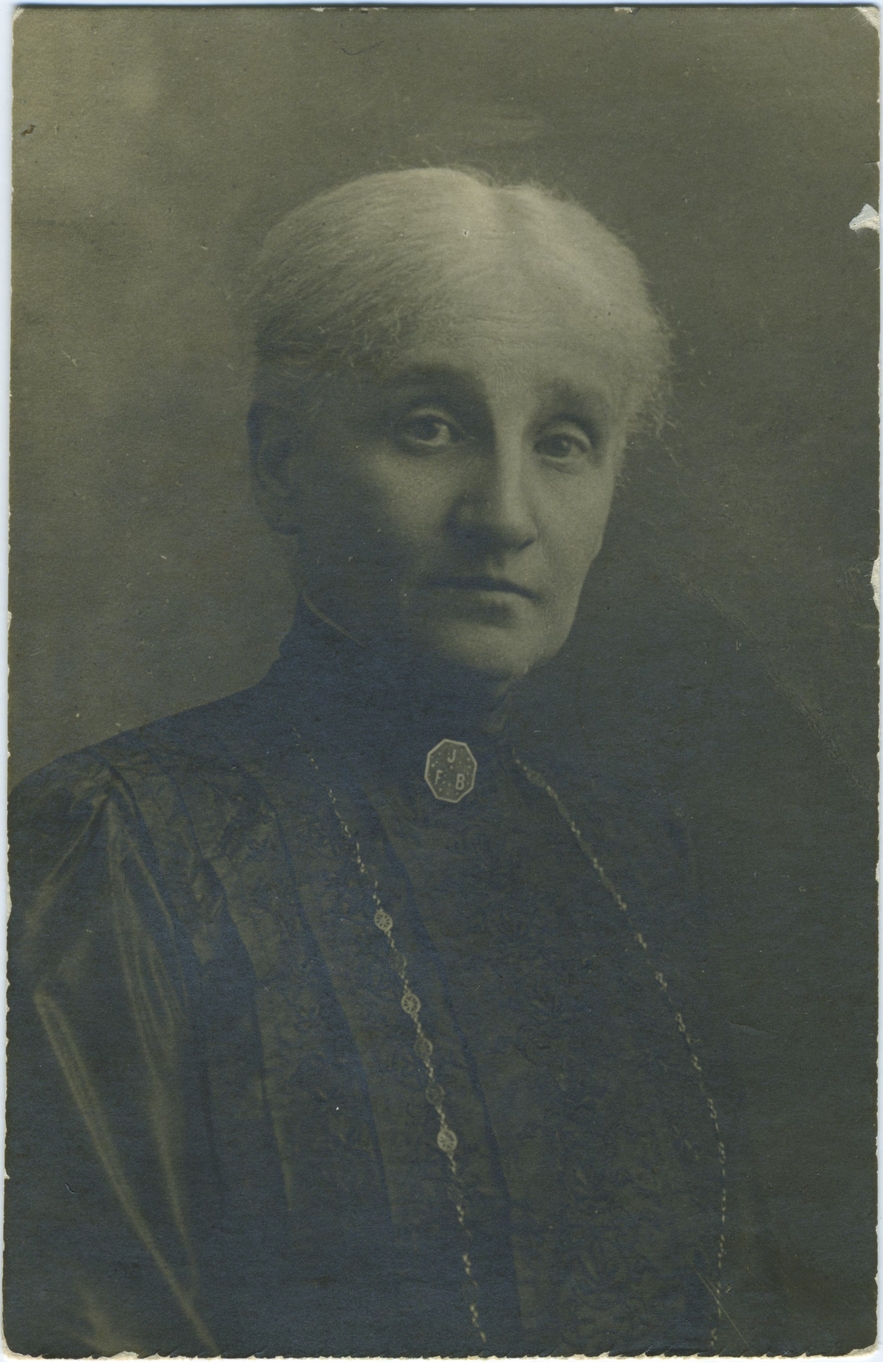
Bertha and the Jüdischer Frauenbund
In 1904, Bertha’s activism helped create the Jüdische Frauenbund (JFB; League of Jewish Women), which she established together with Sidonie Werner. The aim of the JFB was to unify the emancipatory and social efforts of different Jewish women’s associations. At the center of interest of the JFB was the education of Jewish girls. Bertha criticized the secularization of Jews in German-speaking countries. According to her, this development was caused by the lack of education for women in the Jewish faith. The teaching of the Jewish religion was reserved for men only. However, women were the ones leading the household and raising the children. If they did not learn about Judaism, they were unable to transmit this knowledge to the next generation. Therefore, the JFB, and particularly Bertha, emphasized the need for (religious) education for girls.
While the JFB was progressive in advertising for emancipation and equal rights for men and women, it was also traditional by emphasizing motherhood as a central element of being a woman. This duality is also reflected in the life of Bertha Pappenheim. She suffered to have never fulfilled the role of being a mother and, at the same time, worked tirelessly for equality between men and women, particularly in terms of education and opportunities.
Bertha Pappenheim was a leading figure in the German-Jewish feminist movement. Not only did she hold the presidency of the JFB for more than 20 years, but she was also on the board of the Bund Deutscher Frauenvereine (BDF; 'Federation of German Women's Associations') for ten years. Her contributions to the emancipation of German-Jewish women were considerable and still influence the feminist movement today.
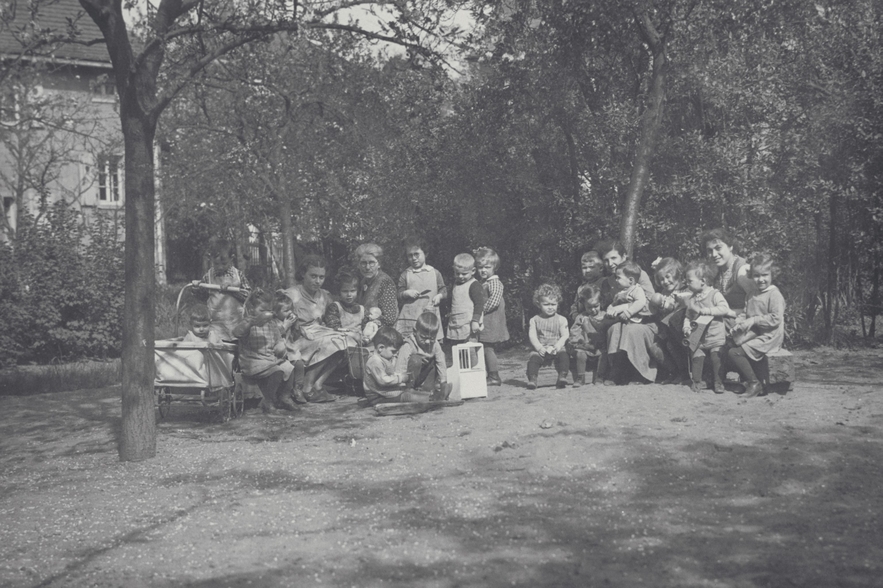
Mädchenwohnheim Neu-Isenburg
In the course of her engagement in women’s rights and welfare, Bertha Pappenheim founded many institutions, such as kindergartens, orphanages, and community homes. The foundation of the children’s home for Jewish girls in Neu-Isenburg, in 1907, was, thereby, at the center of her activism.
As stated above, her interest was to help prostitutes and unmarried mothers as well as children fleeing from pogroms in Eastern Europe. The Mädchenwohnheim in Neu-Isenburg was established to focus on these goals. Pappenheim’s philosophy foresaw the education of girls for an independent life as well as the teaching of religious Jewish values. Over time, the institution grew, and additional buildings were established, such as a school and accommodations for unmarried pregnant women and those who had just given birth.
The home remained open until 1938 when it was destroyed during Kristallnacht on November 9th, 1938.
Eastern European Jews
The work of Bertha Pappenheim was deeply influenced by her belief in social justice and the equality of women and men. One of her main focuses was the support of Jewish women from Eastern Europe. Bertha undertook multiple travels to the East, particularly Galicia but also to Russia, Turkey, and Palestine to learn more about Eastern European Jewry. She published her observations in various books and articles, such as Zur Judenfrage in Galizien (1900) or Sisyphus Arbeit (1924).
Her involvement in women’s rights was primarily driven by her interest in ending ‘white slavery.’ White slavery referred to the forced prostitution and trafficking of women – in this context mainly from Eastern Europe to Western Europe or the Americas – resulting from the poverty in Eastern Europe. In her writings, Bertha highlighted the problems that Jewish women faced in Eastern Europe. Due to the traditional patriarchal conditions, women were in a disadvantaged position. Not only were they excluded from education and decision-making, but the Rabbinical law put women a dependent on their husbands, even after a divorce, without legal rights. All these factors prevented women from supporting themselves. Often, prostitution was the only option left for women to survive in poor living conditions. Bertha addressed her positions publicly during various conferences. Her ideas were rejected by the patriarchal Jewish elite in Germany who denied these realities.
Nonetheless, Pappenheim also blamed the lack of morality of the Ostjuden for the existence of white slavery. This idea of the superiority of Western European Jews was known in many circles of the German-Jewish Bourgeoisie at the time. Pappenheim followed an imperialist logic by arguing that there was the need to civilize the ‘wild people’ of Galicia. She stated that Western European Jews had ‘the duty to stand up for the hard-pressed Galician and Russian Jews’ (Berthold (Pappenheim), 1900, p. 9.). Hence, it was the obligation of the morally superior Western Jews to support those in the East. This referred to Jewish women in particular.
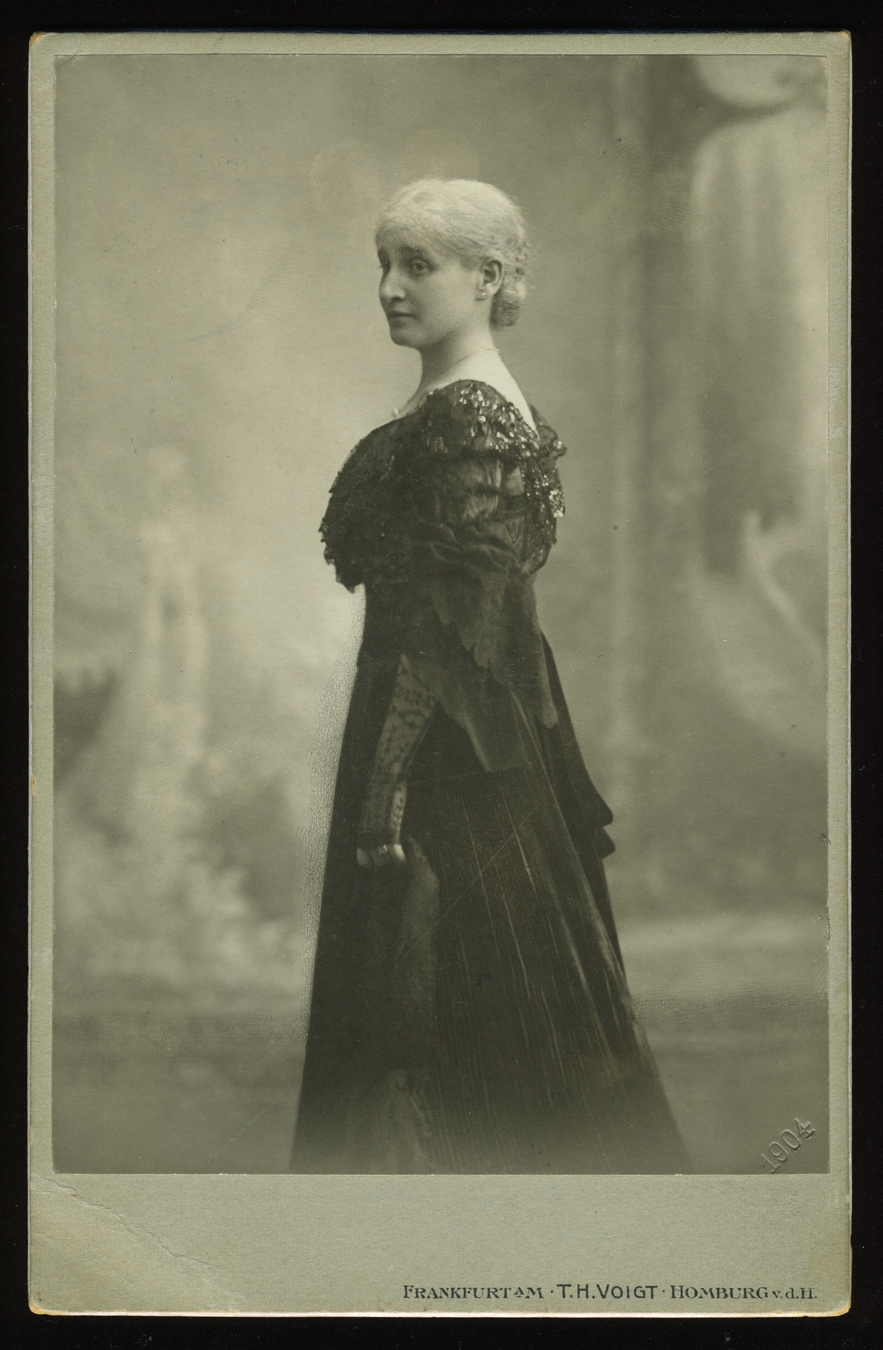
Some people criticize Bertha’s arrogant position on Eastern European Jews. As Kozinska-Witt (2011, p. 6) writes, some of Pappenheim’s articles and statements would have delighted the heart of an antisemite. However, besides her negative perceptions of Eastern European Jews, Bertha Pappenheim was driven by her ideals of social justice and the duty to help those less fortunate, particularly Jewish women.
Even in the light of a growing danger from national socialism, Bertha continued her fight for emancipation. Being a German at heart, she consequently rejected Zionism. This led to a decrease in her influence in the JFB during the 1930s because its members recognized the need for emigration from Nazi Germany. Nonetheless, Bertha remained involved in the activities of the JFB and the Mädchenwohnheim in Neu-Isenburg until she died in 1936.
Conclusion
Bertha Pappenheim was an important character for Jews in Germany in the early 20th century; not only her engagement in the feminist movement, particularly German-Jewish emancipation but also her contributions to social work and her scholarly activities should not be forgotten. With her work, Pappenheim raised important questions that are still relevant today, such as “What does it mean for me to be a woman?” or “What does it mean to be a Jewish woman?”. These questions are also asked today by young (Jewish) women who are in search of their identity and role. The legacy of Bertha Pappenheim can be a starting point to look for answers. Her efforts might serve as a model for women nowadays to engage in the fight for the rights and self-determination of women all over the world.
Sources:
Berthold, P. (Pappenheim, B.) (1900). Zur Judenfrage in Galizien. Frankfurt: Knauer.
Kozinska-Witt, H. (2011). Bertha Pappenheim and Jewish Women from Eastern Europe. Scripta Judaica Cracoviensia. 9. 69-87.